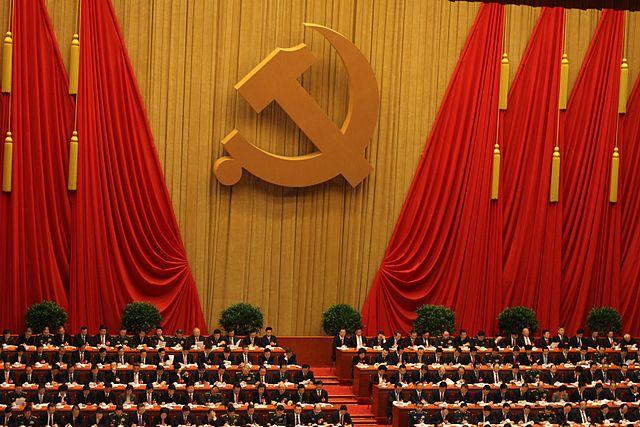China’s new leadership faces challenges in the new year
The 18th National Congress of the Communist Party of China. (Photo by Voice of America via Wikimedia Commons).
China celebrated the beginning of the Chinese Lunar New Year on Sunday, ringing in the Year of the Snake.
But the new year already brings challenges for the country’s new leadership, which will have to move quickly to address problems surfacing in the quickly changing country.
Sheryl WuDunn, a Pulitzer prize-winning journalist and author of “China Wakes: The Struggle for the Soul of a Rising Power,” says income inequality is one of the biggest challenges China will continue to face in the new year.
“China has finally surpassed the level of inequality that is in the U.S., but they’ve tried many different programs and even this past week, they issued a new plan to bridge that gap. And it probably is not going to get there,” she said.
Donald Gross, a senior associate at the Center for Strategic and International Studies, says China’s new leadership has many challenges ahead, but they will also have to face the economic inequality between city dwellers and those moving to cities from the countryside.
“Approximately 250 million people from the countryside have moved to the cities … and they are not eligible for many of the benefits that urban dwellers have under the Chinese Household Registration System that tends to exacerbate the problem,” he said.
When migrant workers come to Beijing to work in the factories they bring their children. But the worker’s children aren’t allowed to attend any of the public schools because their families aren’t registered, WuDunn said.
“When we were in Beijing in December, we visited a school that was a non-profit organization set up just to have teachers teach these kids of migrant workers because they had no place to go,” she said.
The kids lived at the school, while their parents lived in deplorable conditions, WuDunn said.
“Clearly, for the new leadership coming into China,” Gross said, “addressing the inequality economically, increasing pensions, providing much better healthcare, giving greater access to education, not only for city dwellers, but for people in the countryside and those who have migrated to the cities from the countryside … that’s a truly critical challenge they face.”
The slow moving changes are a problem for Chinese leadership, Gross says, and over the past year, there’s been unrest and disputes over labor practices and discontent over environmental degradation.
“From the middle class in China, which has seen its income rise, but is deeply concerned about cronie-ism, nepotism, and incompetence within the leadership and the party, there’s also been rising pressure,” he said.
Migration to the cities from the countryside is another worry for Chinese leadership and as inequality grows, leadership will have to address it, Gross said.
“It really does go to continuing the legitimacy of the communist party and the current leadership in China, they must deal with these problems in an effective way,” he said. “The problems today of establishing an effective social safety net have not been adequately medicated or resolved, so it’s very much on their agenda as they move forward.”
